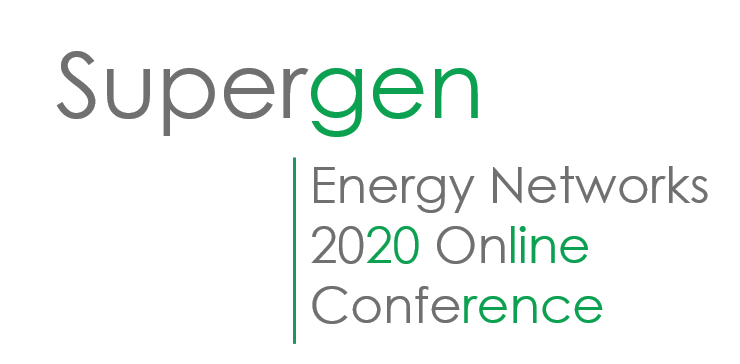
From the 29 April to the 1 June 2020, the Supergen Energy Networks Hub organised and delivered a six week online conference programme which attracted more than 480 registrations.
Phil Taylor, opened the conference with an overview of the Energy Networks (EN) Hub introducing the Supergen EN Co-Investigators and the Research Project Coordinators, working across the hub from Newcastle, Leeds, Manchester, Cardiff and Bath and illustrating how the hub community has grown since starting in October 2018.
Phil discussed the core research programme as well as the activities and roles which are currently being undertaken by the hub as well as the 3 Working Groups on Architectures, Climate Adaptation & Mitigation and Markets & Regulation which have been established.
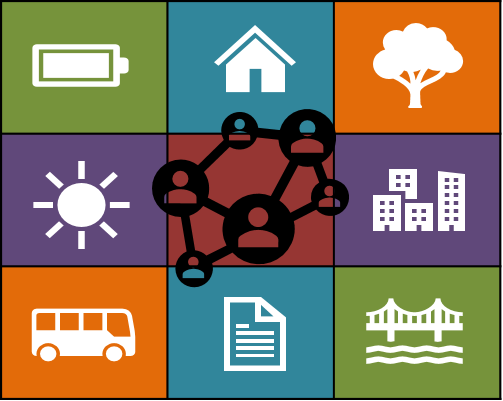
Conference Sessions:

Chaired by Nazmiye Ozkan, Cranfield University, we held three separate Network Interdependency sessions. The first session was presented by Bethan Winter, Wales & West Utilities on Network Interdependencies: Gas Networks: The Key to Unlocking Renewable Energy. Bethan discussed how networks are becoming increasingly integrated and that investment in new technologies will be required with whole system and regional modelling essential to provide insight on future network usage.
The second session concentrated on the UK Power Blackout, August 2019 and this was presented by Janusz Bialek, Newcastle University. Janusz talked about the UK power outage on the 9 August 2019 and what this tells us about GB power systems. He advised that the power system reacted largely as expected to a non-secured contingency, however unexpected train failures caused wide spread disruption and public anger, concluding that interactions between the power system and critical infrastructures should be reviewed.
Spyros Skarvelis-Kazakos, Sussex University and Mathaios Panteli, Manchester University, presented our third Network Interdependencies session. They presented the outline of their future work based on COVID19 and the impact of interdependent infrastructure including resilience and sector interdependencies.

Our session on Climate Adaptation & Mitigation was presented by Alberto Troccoli, World Energy & Meteorology Council (WEMC). Alberto discussed Energy & Meteorology (weather and climate), looking at the basics of climate modelling and climate impacts on networks which could potentially cause large losses. The session was chaired by Konstantinos Chalvatzis, University of East Anglia.

Mary Susan Abbo, Centre for Research in Energy and Energy Conservation (CREEC) presented a keynote presentation on Energy Networks in Uganda and Africa. The presentation including statistics on the energy status in Uganda, noting that 69% of Ugandans use three stone fires for cooking. Mary Susan discussed several large Hydropower Projects which are currently in planning across the country.
Mary Susan Abbo
CREEC goal is to enhance access to modern types of energy through research, training and consultancy in East Africa

A further session on International Perspectives was chaired by Jianzhong Wu, Cardiff University. Abhishek Shivakuma and Vignesh Sridharan, from KTH Royal Institute of Technology Stockholm, Sweden presented a session on Co-Creating Energy-Land-Water resource, planning models with national governments to achieve Sustainable Development Goals (SDG’s). The session looked at the challenges in working towards SDG’s as well as interlinkages between systems looking at OSeMOSYS (Open Source Energy Modelling System)

On the 11 May we welcomed our first panel session of the online conference. Chaired by Karen Henwood, Cardiff University, the panel consisted of both Industry and Academia who presented on the Societal Perspectives of Energy Networks. The session was entitled: Network Resilience and Intersectoral Connectivity: Energy Infrastructure, Carbon Literacy and Vulnerability. The session started with a short talk from Peter Smith, National Energy Action (NEA). Peter discussed existing drivers for fuel poverty and NEA’s collaborations with networks, as well as their previous and current work with GDNs and DNO’s and opportunities for upcoming RIIO2 consultation.
Muditha Abeysekera, Cardiff University presented his work on Decarbonisation of the Public Sector which included a background of the public estate which consumes 6% of the UK’s energy supply, with the government spending over £2billion per annum on its energy bills. Muditha concluded his talk advising that ‘good quality energy data collection and analysis is an important area that needs improvement and that accessible, user -friendly ‘decision support tools’ are needed to identify improvement opportunities of public sector energy systems’.
Our third talk in this session was from Simon Roberts, Centre for Sustainable Energy (CSE). Simon discussed why we need an energy system that is both ‘smart and fair’ and the role of energy network companies in delivering it.

Keith Owen, Northern Gas Networks (NGN) discussed the Net Zero Challenge, GB Energy Consumption and advised on the numerous GB Gas Industry projects throughout the country, specifically those which NGN are involved in: HyDeploy and H21 (Link) as well as an update on the InTEGReL (Integrated Transport Electricity and Gas Research Laboratory) project based in Gateshead which is in collaboration with Newcastle University, Northern Powergrid and Siemens among others.
Carlos Ugalde-Loo, Cardiff University presented his work on flexibility provision in District Cooling Systems looking at Integrated Energy Systems (IES) and how ‘IES can use complementary advantages of having various energy vectors.’ We also had presentations from Spyros Skarvelis-Kazakos, Sussex University and John Barton, Loughborough University which included information on the role of hydrogen storage in resource aggregation and virtual power plants as well as Hydrogen and Heat Delivery. The session was chaired by Upul Wijayantha, Loughborough University.

The Early Career Researcher (ECR) session on the 20 May, chaired by Robin Preece, Manchester University consisted of several presenters from Academia and Industry. The session focused on Career Pathways for Early Career Researchers starting with a talk from Keith Bell, Strathclyde University and his pathway to becoming a Professor as well as a talk from Tingyan Guo, consultant at Deloitte and how she has moved into Industry following completion of her PhD in Electrical Energy and Power Systems. We also had talks from Rose Chard, Energy Systems Catapult, Celia Butler, Synopsys, Jacqueline Edge, Imperial College and Nick Wooley, ev.energy.

As part of the conference we held an offshore session which was hosted by Lars Johanning, University of Exeter and featured talks from Industry and Academia. Simon Cheeseman, Offshore Renewable Energy Catapult discussed Tidal Stream & Hydrogen System Integration, how the energy system will differ significantly to the existing energy system in 2050, with the majority of electricity expected to be generated by renewable sources including offshore wind.
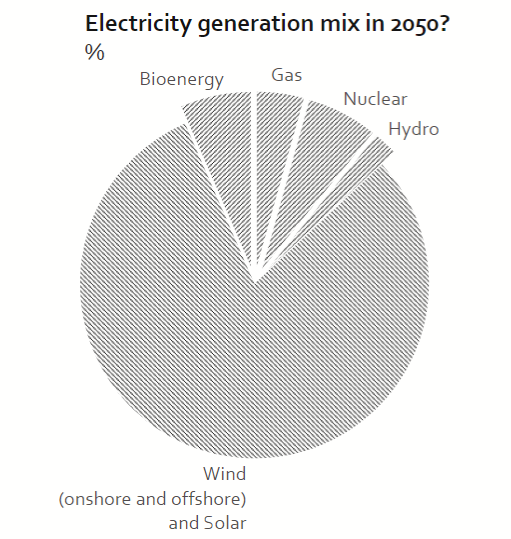
Ajit Pillai, University of Exeter talked about the complex bathymetry which is considered when locating wind turbines such as high seabed slope and wrecks and AI approaches for the Offshore Cable Network reliability based design. The third talk in this session was from David Parish, Planet A solutions, discussed a case for symbiotic, cross vector, multi technology networks and the need for a flexible microgrid with cross vector energy flows preventing network stress.

Michael Pollitt, Cambridge University spoke about the Regulation of Energy Markets including his work on the MERLIN (Modelling the Economic Reactions Linking Individual Networks) project.
‘Having a supportive regulatory environment around flexibility procurement is crucial’
The session also included a talk from Rebecca Willis, Lancaster University. Rebecca discussed getting Energy Governance right, the GB Energy Governance: current institutions and responsibilities which include BEIS, DfT and Defra and how an Energy Transformation Commission, a coordinating body, may be able to act on behalf of the government by pulling together the different government departments

The Digital Networks Session, chaired by Myriam Neaimeh, Alan Turing Institute involved 3 presentations from Myriam, Dragan Cetenovic, Manchester University and Xavier Bellekens, Strathclyde University.
[Cyber Security] costing £27billion p.a)
The session included information on Digital Twinning, a cloud based platform to modernise energy data access and network planning as well as real-time state estimation and FDI (False Data Injection) attacks and the challenges of cyber-threat detection and mitigation for energy networks. Understanding complex threats from Tier 1 to Tier 6 attackers and the energy challenges which need to be thought about in anticipation of a Cyber attack.

Our final conference session was an Industrial keynote from Emma Pinchbeck, Energy UK and Rebecca Williamson, Renewable UK.
Emma and Rebecca discussed how to get to net zero and the changing energy industry in relation to electricity, hydrogen and land use, etc as well as technology innovation to make use of onshore and offshore wind.
Chair, Sara Walker, Newcastle University, concluded the conference with a summary of the online programme.
Conclusion
Over the six week period we delivered fourteen online conference sessions with thirty-two speakers from Industry and Academia and a live attendance of between 50 – 100 delegates dialling in to each session.
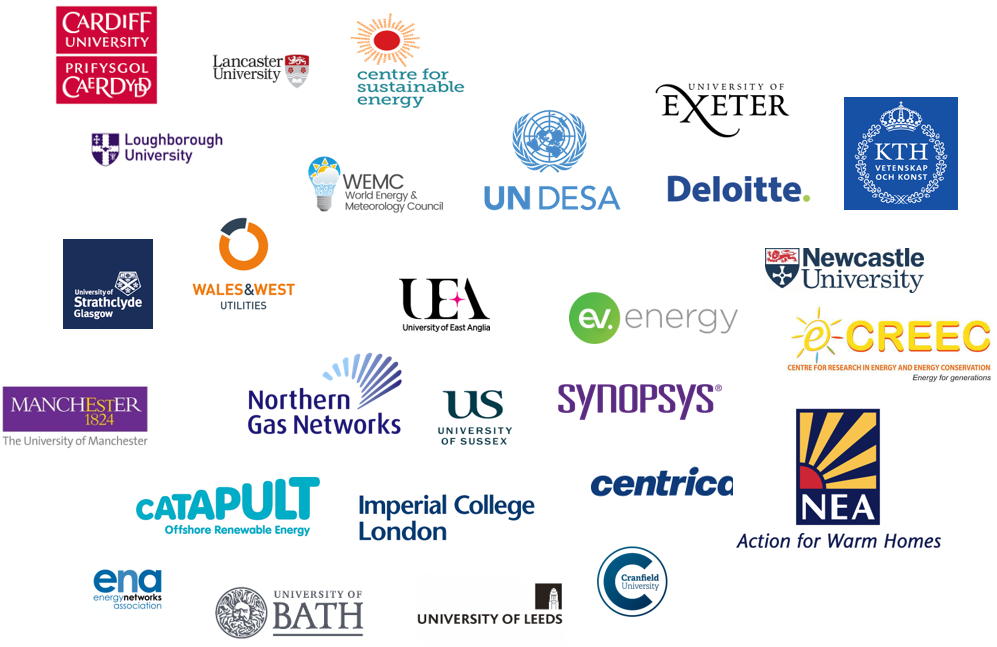
A feedback form has been sent through to all conference delegates, our aim is for their feedback to add to our own reflections.
[The conference] was a great event –lots of interesting discussions and ideas for potential proposals
In moving forward we aim to ensure sessions have a more diverse range of speaker and that dial in details can be distributed in a more efficient way.
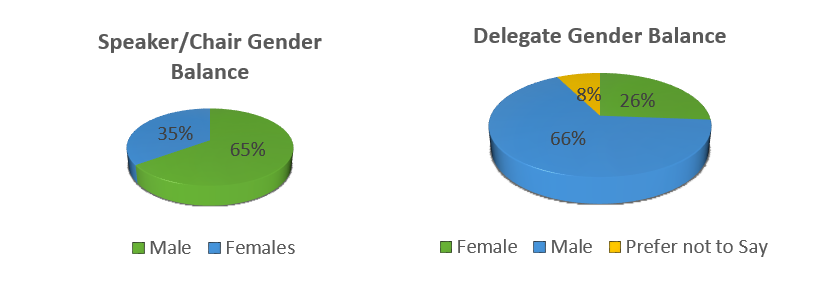
‘The conference has gone from a potential another cancelled event to a great success!’
If you would like any further information regarding the online conference programme please contact Lindsey Allen or Linda Ward supergenen@newcastle.ac.uk